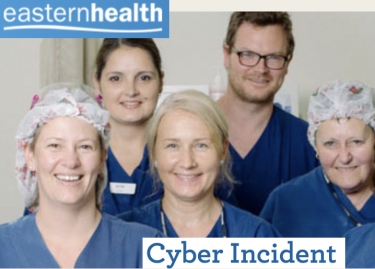Already covered in iTWire this morning is the news that Eastern Health has been impacted by a "cyber incident", which has seen many Eastern Health IT systems taken offline "as a precaution" while the company seeks "to understand and rectify the situation".
Jacqueline Jayne, the Security Awareness Advocate at KnowBe4 APAC, has provided the following commentary:
|
|
Jayne said: "Hospitals are a very attractive target for cybercriminals due to the nature of the information they hold on their patients. Information that, once obtained, can be used for identity theft and sold multiple times on the dark web.
"This is not only health-related data as the addition of personally identifiable information (PII) is also there for the taking. Once illegal access has been obtained into a hospital there is also information available on employees, vendors and general business information which provides even more reason for cybercriminals to target this sector.
"When you consider the completeness of information available on an individual, it is clear as to why hospitals are so popular to cyber attackers as the dollar value of the data increases significantly.
"The Notifiable data breach report from the OAIC lists the Health service providers as the top industry sectors to report breaches from January to June 2020 with 115 notifications.
"It is unclear at this stage what type of cyber incident has occurred, but it is likely to be ransomware which enters a computer as a result of a cybercriminal entrapping or manipulating a human into taking action. This action could be clicking on a link or opening an attachment in a phishing email or they may have clicked on a link outside of their email that opened a malicious website. From here the cybercriminals deploy their ransomware."
No doubt KnowBe4 is hoping that organisation fearing the same kind of "incident" are motivated to use its services, although without knowing exactly how the attack occurred, as yet, it is impossible to know whether such training would have prevented the attack, given ransomware can infect computer systems not just through email, but through vulnerabilities in software that has either yet to be patched, is part of a zero-day attack for which no patches are yet available, or through some other vector.
Either way, deploying a full suite of security measures, from training, to patching, to security solutions, to extensive backups and more is essential in both preventing such incidents from occurring in the first place, through to fast remediation and restoration of services should attacks be successful.











































